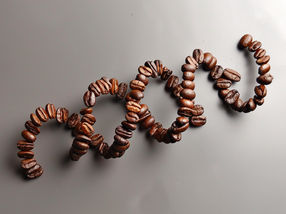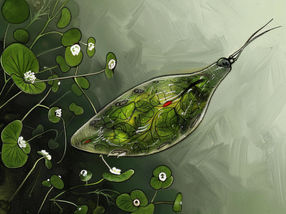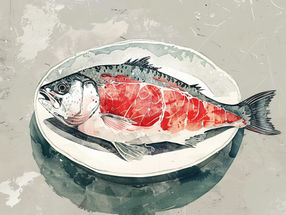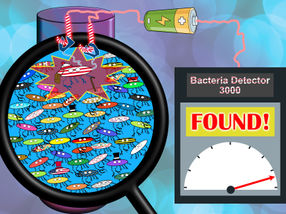Getting rid of Salmonella
Emma Wetter Slack will receive the ETH Zurich Latsis Prize 2017 at the upcoming ETH Day. The immunologist is working on an oral vaccine against Salmonella that could be given to animals. Her research could reduce the use of antibiotics in animal breeding.
The British-born scientist is a Executive Scientific Collaborator at ETH Zurich’s Institute of Microbiology, where she heads up a group in the laboratory of ETH Professor Wolf-Dietrich Hardt. She and her team develop methods with which to investigate the population dynamics of intestinal bacteria in a host and improve understanding of the interaction between host and bacteria.
Wetter Slack studied natural sciences at the University of Cambridge in the UK and followed this with a PhD at the London Research Institute. She then went on to conduct research in Canada and at the University of Bern, where she began to focus on the interplay between host and intestinal flora in primary immunodeficiency. In 2011, she received an Ambizione grant from the Swiss National Science Foundation, which allowed her to establish her own research group at ETH Zurich. Since then, she has been investigating how acquired immunity controls bacteria in the intestine and how the body gets rid of undesirable intestinal inhabitants.
Enchaining Salmonella
Wetter Slack has been awarded the ETH Zurich Latsis Prize for her groundbreaking research into Salmonella and how these bacteria can be combated with an innovative oral vaccine (ETH News reports). Her research has shown, among other things, how the antibodies produced after the vaccine enchain the diarrhoea pathogens as they grow and bind them together in a kind of raft. These clumps cannot penetrate the intestinal wall, which suppresses inflammation. This also stops the Salmonella from transferring genetic material among one another, thus preventing the bacteria from evolving into antibiotic-resistant species, for example.
Wetter Slack will receive the prize on ETH Day. She is only the fifth woman to receive the annual prize since it was introduced in 1985 to honour outstanding scientific work across all of the ETH Zurich research fields.
Most read news
Other news from the department science

Get the food & beverage industry in your inbox
From now on, don't miss a thing: Our newsletter for the food & beverage sector brings you up to date every Tuesday and Thursday. The latest industry news, product highlights and innovations - compact and easy to understand in your inbox. Researched by us so you don't have to.






























































